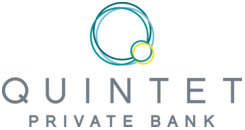This month:
This month’s investment experts focus on the risks around certain equities while expounding the better value to be found in bonds. Also highlighted are fascinating global trends pushing water scarcity forward as an important investment theme.
Expert investment views:
One wealth manager explains their defensive equities positioning, and why US and Eurozone exposures have been trimmed from usual levels
The case is made for bonds offering better value than equities, with highly rated ones poised to benefit from a potential flight to safety
A modest upside for UK equities is predicted for 2024, after the weak summer just passed
Water scarcity emerges as a powerful investment theme as companies jostle to power up desalination and distribution efforts globally
Featuring this month’s experts:




1. Proceed with caution
Insights from:

Central bank messaging of late has been quite clear: the battle against inflation is not won. Even though the peak in interest rates is a moving target, we believe it’s now in sight.
We expect the US Federal Reserve (Fed) likely has one rate increase left, or perhaps it won’t even have to raise rates any further. The European Central Bank (ECB), however, is poised to continue to push interest rates higher for a little while longer. The Bank of England (BoE) has a much tougher job on its hands to combat persistently high inflation in the UK, and it has acknowledged that a recession may be necessary to make meaningful headway in bringing down inflation.
Within equities, we are mostly defensively positioned, with a lesser exposure to US and Eurozone equities versus our typical allocation, and a preference for low-volatility stocks in the US and Europe
Like the West, Asian economies are also grappling with the impact of slowing manufacturing and global growth, compounded by lingering trade tensions. Nevertheless, without the worry of high inflation, a glimmer of hope remains with potential policy support through low rates and fiscal stimulus, particularly in China. Japan, on the other hand, is experiencing a period of economic and earnings recovery, as well as positive inflation trends and structural reform.
A lot remains uncertain. This is why we are sticking to our cautious approach to portfolio positioning. Relative to our long-term asset allocation, we own more high-quality bonds and less equities and risker bonds. Within equities, we are mostly defensively positioned, with a lesser exposure to US and Eurozone equities versus our typical allocation, and a preference for low-volatility stocks in the US and Europe. This should help capture some of the upside while protecting portfolios if market volatility was to pick up.

Daniele Antonucci
Chief Investment Officer at Quintet Private Bank
2. Better value in bonds
Following a pick-up in inflation and consecutive interest rate hikes from central banks, the fixed income asset class sold off dramatically in 2022. As a result, the yield available on 10-year government bonds is now at 15-year highs.
Meanwhile, we have seen a narrow equity rally dominated by a handful of mega-cap technology stocks perceived to be large beneficiaries of the artificial intelligence (AI) boom. The price-to-earnings ratio of the S&P Information Technology index is trading at a level last seen during the dot com bubble.
As a result, we see better value in bonds than equities, particularly given the lingering uncertainty over the global economy. Furthermore, if we enter a global recession, highly rated bonds should benefit from a ‘flight to quality’ scenario in which investors sell riskier assets, such as equities, in favour of safe haven assets, such as bonds.
If we enter a global recession, highly rated bonds should benefit from a ‘flight to quality’ scenario in which investors sell riskier assets, such as equities, in favour of safe haven assets, such as bonds
Within fixed income, security selection and risk mitigation are crucial. Sustainability assessment is necessary to understand risks. A greater understanding of how regulatory changes will affect companies means more in-depth credit analysis of company bond issuances is possible.
For example, the price of carbon emission allowances within the EU increased from €10 to more than €100 per tonne of CO2 between early 2018 and early 2023 . At the same time, companies in the European power-generating sector have seen their spending on emissions allowances jump from around 1% to more than 3% of turnover . These cost increases could have significant ramifications for corporate profitability. Therefore, pricing in environmental or social costs helps insulate investors from ‘non-financial’ risks.

Fred Kooij
Chief Investment Officer at Tribe Impact Capital

Top Tip
This month’s Investment Bulletin illustrates just how valuable the intellectual capital you get from a professional wealth manager is. How many of us can claim to be experts in water desalination? Few I would guess, but these are clearly very important investment themes which will no doubt influence all of our portfolios over the long term. Understanding these topics – or rather having an expert on hand who does – will be key.
If you are keen to access institutional-grade investment research, personalised advice and white-glove service, why not see what a shortlist of leading wealth managers could offer you? We can arrange no-obligation discussions fast and free.

Lee Goggin
Co-Founder
3. A weak summer for UK equities but what next?
The FTSE 100 has had a low single digit decline since the end of July. Generally economic data has been pointing to the global economy slowing as we enter the latter part of the year, in particular the forward-looking survey indicators. That said, the backward-looking hard data, (e.g., GDP growth) has been slightly better than anticipated. Our sense is that global economic activity is likely to soften in the coming months, but the resilience seen so far this year, most notably in the US, suggest that the chances of a sharper downturn are fading.
Companies on balance reported slightly better-than-anticipated earnings for the second quarter, but expectations had been lowered into the results. Overall, therefore, consensus earnings expectations for the course of this year have been slightly lowered to around -10% eps growth for the MSCI UK.
In the FTSE All share, some of the worst-performing sectors in the past month have been Financials, Materials and Utilities; some of the better ones have been Energy and Industrials.
Given the MSCI UK trades on a P/E of just 10X, a 40% discount to global equities, and given the outlook for interest rates, inflation and growth, we believe the FTSE 100 can gradually move higher and anticipate the FTSE 100 to reach 8,200 by June 2024 while offering a 4% dividend yield
The recovery in the oil price above USD 80/bl has helped Energy stocks, but the continued disappointment in Chinese data has caused materials to lag behind. Meanwhile UK bond yields rose in early August, but the 10yr UK government bond yield now stands at over 4% after the Bank of England increased base rates by just 25bps in August lifting its base rate to 5.25%. Despite the slowing economic backdrop, we believe UK interest rates still have higher to go given the still high inflation in the UK, particularly apparent in core (ex. energy, food and tobacco) and services inflation. We anticipate the base rate to reach 5.5% in September where it is likely to stay there for some months before gradually being lowered as we approach next summer. Consensus expectations for the outlook on UK interest rates have been volatile of late, seemingly swinging with every data release. Such volatility has been unhelpful performance recently of sectors such as banks and insurance which are sensitive to interest rates and yield curves.
What does all this mean for the outlook for equities? Modest upside we believe. Whilst we anticipate UK Earning Per Share growth to decline around 7% this year, we expect a modest recovery in 2024. Given the MSCI UK trades on a P/E of just 10X, a 40% discount to global equities, and given the outlook for interest rates, inflation and growth, we believe the FTSE 100 can gradually move higher and anticipate the FTSE 100 to reach 8,200 by June 2024 while offering a 4% dividend yield. In contrast, by then, cash rates will likely be lower than they are today.
4. Water scarcity and where to catch the wave
Few will have failed to notice the sustained heatwave throughout Europe, named Cerberus after the hound of Hades, in which much of Europe experienced the hottest temperatures on record. Parts of North America and Asia have also endured similar conditions.
This trend in rising temperatures is causing disruption to the water cycle and when combined with the population growth burden on water consumption, additional pressures will emerge. Furthermore, rising sea levels will result in the greater salinization of groundwater; currently 97% of the world’s water is saltwater and of the remaining 3%, only 0.5% is useable freshwater. About 2 billion people worldwide do not have access to safe drinking water and roughly half of the world’s population is experiencing severe water scarcity for at least part of the year. By 2025, 1.8 billion people will live in regions with absolute water scarcity.
The opportunity? Currently over 300 million people get water from desalination plants (20,000 globally), with the desalination industry predicted to be worth US$32 billion by 2025
The opportunity? Currently over 300 million people get water from desalination plants (20,000 globally), with the desalination industry predicted to be worth US$32 billion by 2025; the key barrier to entry is the high construction cost while detractors include potential ecological impacts and the energy intensive nature of the plants. Improvements to water use efficiency will also become more essential and legally binding in many countries.
Stock ideas for playing these themes include:
- Consolidated Water Company – Desalination plants and water distribution systems.
- Veolia Environnement – Water and wastewater services.
- Energy Recovery – Energy recovery devices for the water desalination industry.
- Ecolab – Systems purifying water.
- Xylem – Smart technology water solutions

James Bowes-Lyon
Investment Director at Tyndall Investment Management
Important information
The investment strategy and financial planning explanations of this piece are for informational purposes only, may represent only one view, and are not intended in any way as financial or investment advice. Any comment on specific securities should not be interpreted as investment research or advice, solicitation or recommendations to buy or sell a particular security.
We always advise consultation with a professional before making any investment and financial planning decisions.
Always remember that investing involves risk and the value of investments may fall as well as rise. Past performance should not be seen as a guarantee of future returns.



